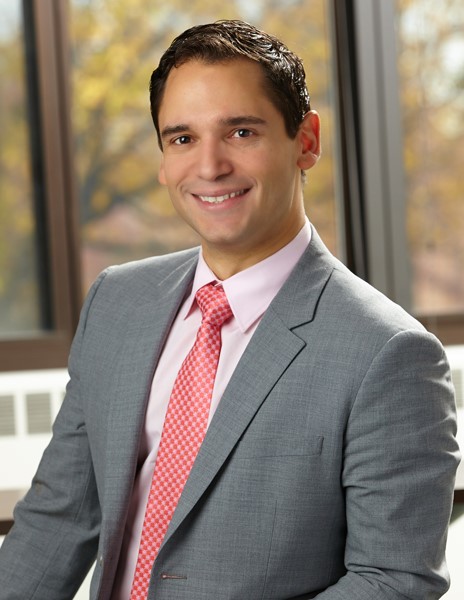Q&A with Dr. Constantinos K. Coursaris, Greek Diaspora Fellowship Program (GDFP) alumnus
 Dr. Constantinos K. Coursaris, Associate Professor at Michigan State University, took part in the first cohort of the Greek Diaspora Fellowship Program (GDFP), travelling to Greece to the University of the Aegean. There, he collaborated with the Department of Information and Communication Systems Engineering.
Dr. Constantinos K. Coursaris, Associate Professor at Michigan State University, took part in the first cohort of the Greek Diaspora Fellowship Program (GDFP), travelling to Greece to the University of the Aegean. There, he collaborated with the Department of Information and Communication Systems Engineering.
GDFP is a scholar exchange program for Greek universities to host Greek scholars from the diaspora in the areas of collaborative research, curriculum co-development and graduate and undergraduate student research mentoring and teaching. The GDFP is funded by a grant from the Stavros Niarchos Foundation (SNF) to the Institute of International Education (IIE.) The program is administered in collaboration with the Fulbright Foundation in Greece.
In GDFP’s initial pilot phase, the program supported 49 fellowships, connecting Greek scholars from abroad with Greek institutions and academics, furthering opportunities for mutual engagement and collaborations. Applications are open for the next round of the fellowship. Apply here.
Read on to learn about Dr. Coursaris’ experience with GDFP:
What drew you specifically to the Greek Diaspora Fellowship Program?
As economic recovery in Greece requires significant investment in human capital, I hoped to serve as a value-adding resource in the mentoring and eventual placement of graduate and post-graduate students. In addition, the Greek Diaspora Fellowship Program would provide me with the opportunity to meet peers at the host institution, which could be the catalyst of new research collaborations, but also institution-level partnerships. Doing so would be in line with MSU’s World Grant Ideal, which is enacted, in part, through a greater internationalization of our East Lansing campus, the provision of education abroad opportunities to Michigan State University students and the bilateral mobility of teacher-scholars. On a more personal level, it would also allow me to experience first-hand how Academia in Greece is both organized and functioning rather than rely on mediated anecdotes.
Describe what makes this program unique.
Over the past decade, more than 427,000 Greeks — mostly in their 20s and 30s, and with higher education credentials — have emigrated, driven primarily by the economic crisis facing the country. The Greek Diaspora Fellowship Program is an exciting initiative supported by the Stavros Niarchos Foundation (SNF) and administered by the Institute of International Education (IIE) in collaboration with the Fulbright Foundation in Greece to help mitigate Greece’s “brain drain”. It is a unique program as it provides the opportunity for Greek born-and-emigrated scholars in the U.S. and Canada to return to Greece for a short period of time and support the domestic higher education, at a time when public investments in education and research are near the bottom among developed countries. While for most of these Greek-born scholars, myself included, moving back to Greece permanently may not be feasible, the opportunity to mentor graduate students, collaborate with research faculty, and create institutional partnerships that enable the bilateral mobility of students and faculty, is unparalleled. In essence, this program is unique in that its very mission is like dropping a pebble into a calm pond and causing ripples that continue to expand.
How did this particular experience and project contribute to your desire to give back to your country of Greece?
First and foremost, I had the opportunity to meet many wonderful and talented faculty and students. Engaging with them on a daily basis was highly enjoyable and productive; their scholarly drive and personal pride in the work being done was truly inspiring. However, their efforts are hindered by a lack of resources, infrastructure, and capacity. Having been hosted by a local higher education institution provided me with the opportunity to witness these challenges first-hand, and allowed me to identify ways through which I can help mitigate some of these issues – from supporting capacity building in research collaborations and graduate student mentoring, to leveraging access to electronic resources such as scholarly article databases and data analysis software applications that enabled research productivity. The opportunity to do my small part in enhancing the academic experience of students, particularly at the graduate and post-graduate levels, and in fostering scholarly collaborations and academic exchanges that can benefit generations of students to come, is an intrinsically rewarding experience like no other.